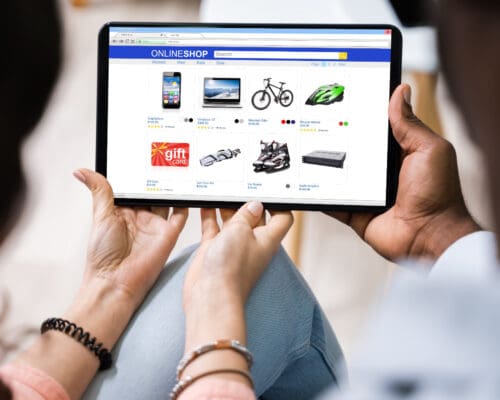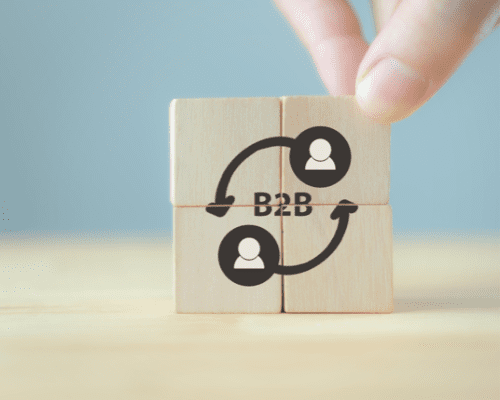Excellent customer service is in high demand, and new technologies in CRM software heighten both the customer and employee experience.
Selecting the best customer service management software for your organisation can be an overwhelming task. With a large array of vendors to choose from, and a multitude of options within each modern CRM solution, navigating this landscape is no easy feat.
In a recent publication, Forrester states, ‘The extended CRM ecosystem encompasses a huge swath of marketing, sales, e-commerce, customer service and field service technologies.’ At redk, we understand the importance of selecting the best CRM for your organisation’s specific needs and we have successfully implemented the right solution in leading companies such as Acuris, Baleària and Havas Media Group.
Excellent customer service is in high demand, and new technologies in CRM software heighten both the customer and employee experience. Through AI, automation and cloud platforms, CRM technologies help provide a seamless journey and help to limit repetitive actions.
Defining your business model, breaking down company size and sorting through the capabilities are three key steps to follow when selecting your company’s CRM software.
B2C or B2B?
With the modern CRM options offered today, choosing software is not a this or that choice. Instead, it’s important to break down the type of interactions your company has with its customers and then build upon that. In order to select the correct CRM, you must first define your business model as B2C or B2B.
A B2C business model requires digital CRM software. Engagement with customers will include customer feedback and loyalty management solutions. Discovering customers will be done through social media and preference management, as well as enterprise marketing software. Customer service interactions will be digital, allowing customer service representatives to focus on sales engagement platforms.[vc_row][vc_column width=”1/1″][vc_column_text]
What is your company size?
The next guiding factor when selecting CRM software is distinguishing the size of your company. With all of the capabilities CRM suites can offer, it is easy for features to go unused. To avoid this, CRM vendors usually break down companies into four different size categories: enterprise, midsize, small and specialty solutions.
An enterprise usually consists of 1,000 or more employees, and vendors seek to offer them a full range of CRM solutions. Enterprise CRM vendors have a presence worldwide and offer deep vertical solutions. Forrester states, ‘This type of CRM is decomposed into discrete applications and backed by robust deployment, adoption and optimisation services and thought leadership.’ An enterprise CRM includes vendors such as Salesforce, Microsoft or Oracle.
A midsize company comprises 1,000 or fewer employees. This type of CRM is easier to implement and does not require the same type of IT resources as a larger organisation. Midsize vendors include SugarCRM, Zendesk and Creatio.
A small organisation has simpler CRM needs which usually focus on the core features necessary for sales and marketing. Vendors in small organisations include Freshworks, Zoho and HubSpot.
Specialty solutions are implemented in companies that are seeking specific capabilities in their CRM software. This category includes vendors that specialise in fields such as telecommunications, nonprofit organisations or financial services.[vc_row][vc_column width=”1/1″][vc_column_text]
A B2B business model will use a traditional CRM solution. Engagement in this model will focus on customer success, and discovering customers will be done through marketing automation platforms. Customer service interactions will be through fully supported field service solutions, and customer service representatives will use sales engagement platforms, sales force automation solutions and account-based marketing solutions. [vc_row][vc_column width=”1/1″][vc_column_text]
Once you identify if your company needs a digital or traditional CRM, you can then explore options based on company size.[vc_row][vc_column width=”1/1″][vc_column_text]
[vc_row][vc_column width=”1/1″][vc_column_text]
Vertical CRM solutions
CRM vendors are well aware of the fact that different organisations seek different products and that horizontal solutions are not the perfect fit for everyone. To this end, vendors offer lightweight and deeply vertical solutions.[vc_row][vc_column width=”1/1″][vc_column_text]
The typical horizontal CRM offers capabilities across all industries, but may not meet specific needs within your company. Instead, select a lightweight or deeply vertical CRM and layer on capabilities specific to your company’s market.
How to choose a CRM: Use the resources available to you
The CRM landscape is vast and difficult to navigate, but we’re here to help. At redk, we have over 15 years of extensive experience implementing CRM solutions that best fit our customers’ needs. Our digital consulting success has allowed our clients to attract, convert and retain clients thanks to their excellent customer service.
Allow us to help you find a more personalised approach in order to optimise customer service in your organisation. Reach out today and we can ensure your organisation makes the right CRM choice.
Sources:
Use Three Guidelines To Choose The Right CRM For Your Operations[vc_row][vc_column width=”1/1″][vc_column_text]










